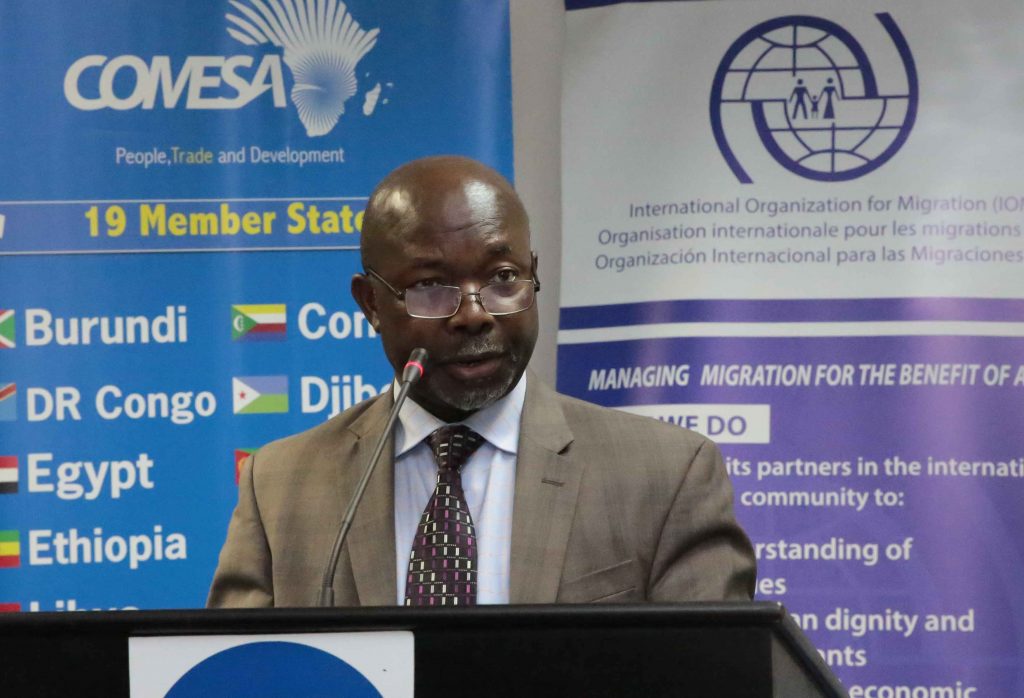
Thursday, February 11, 2021: The International Organization for Migration and COMESA will review their current memorandum of understanding (MoU) to incorporate emerging issues on movement of people particularly in the implementation of the African Continental Free Trade Area (ACFTA) as well as the COVID-19 pandemic.
Priority issues to be addressed are those relating to free movement of people under the ACFTA framework now that majority of the African Union member States have endorsed the free movement of goods and services.
Also notable during the COVID-19 pandemic, has been an upsurge of non-tariff barriers affecting free movement or people, goods and services as countries strive to contain the spread of the pandemic
“Given the changing dynamics and human mobility issues not just from the Corona pandemic but others – its time to revisit our MoU signed in 2003 to include these emerging issues”, Mr Charles Kwenin, the IOM Regional Director for Southern Africa Region said.
He was speaking during a virtual meeting with COMESA Assistant Secretary General in Charge of Programmes, Dr Kipyego Cheluget yesterday, Wednesday 10, 2021. They agreed that technical teams from the two organization begin reviewing the current MoU with a view of finalizing it within a short time frame. Further inputs to the new MoU will also come from the meeting of Chiefs of Immigration from COMESA Member States scheduled next month.
Noting that trade and migration are entwined, Dr Cheluget observed that the movement of goods and services cannot be realized in isolation of free movement of business people across the region and the continent.
“Some of our Member States, especially in the eastern Africa sub-region, have made good progress in the implementation of the COMESA protocol on the free movement of people and the right of establishment,” Dr Cheluget observed. “However, there have been setbacks where countries make one step forward, one step backward.”
They noted that IOM and COMESA shared common interest in their quest to facilitate movement of people by addressing impediments to regional trade. Currently, the two organizations are collaborating on implementation of a European Union funded small cross border trade programmes under a co-delegation framework. Under this framework, COMESA co-delegated implementation of the component relating to movement of small scale traders in selected regional borders.
This has led to a successful launch of the Migration Information and Data Analysis System at Mchinji border between Malawi and Zambia, which allows the Member State to collect, process, store and analyse information for the purpose of identification of travelers, data collection and analysis. The system supports the evaluation of cross-border traffic, helps determine the optimum deployment of human resources at border posts and supports a better understanding of human mobility flows.
The two organizations are also jointly organizing the annual COMESA Migration Dialogue (MIDCOM) which is a consultative forum for planning programmes. The dialogue is scheduled for early March this year.

